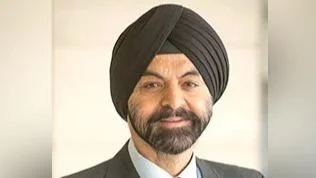Guatemala faces significant challenges with chronic malnutrition, particularly in its indigenous communities. Nearly half of the country's children under five suffer from stunting, a condition exacerbated by poverty and limited access to healthcare. In response, the Crecer Sano Project was initiated in 2017 to address these issues, focusing on the first 1,000 days of life.
The project aims to improve health outcomes through a multi-sectoral approach that includes enhancing healthcare infrastructure, improving water access and sanitation, and integrating traditional practices with modern maternal care. It has established new health posts and renovated centers in remote areas to reduce travel burdens for families seeking medical care.
Juan Alberto Choy, Vice President of COCODE in Alta Verapaz, highlighted the importance of providing water filters: “The provision of filters is very important for the community because it helps us protect life—we can now drink clean water.”
Indigenous midwives play a crucial role in this initiative. The project incorporates their knowledge into training materials to promote healthy breastfeeding practices. Anastasia Tecún, a midwife from Chichicastenango, expressed her satisfaction: “It brings me great joy to be part of the Crecer Sano Project... Now I can tell many mothers to breastfeed, so we no longer have malnourished babies in our community.”
Mobile healthcare brigades extend services like vaccinations and prenatal care to isolated communities. During the COVID-19 pandemic, these teams provided essential medical equipment and expanded healthcare capacity.
Significant progress has been made across 139 municipalities with high indigenous populations. New health posts have been inaugurated, including two opened by President Bernardo Arévalo on September 4, 2024. Vilma Ventura, a nurse from Chichicastenango, noted: “We are very grateful now that we have a new health post... it will be much easier to access services.”
Domingo Caal, Indigenous Mayor of San Juan Chactelá in El Quiché praised improvements: “We are very happy with how the Health Post turned out; it wasn’t like this before.”
Water filters have reached over 31,000 families to prevent diarrheal diseases linked to malnutrition. Brenda Tzib from Alta Verapaz remarked: “The filters arrived at the perfect time because there are no water systems here... The filters will help reduce diarrheal diseases.”
In addition to infrastructure improvements and sanitation efforts, over 4,500 indigenous midwives have been trained as part of nutrition and maternal health initiatives. Nutrition kits have also been distributed widely.
President Bernardo Arévalo emphasized the project's broader impact: “This health post is just the beginning... we can all live well, and no one is left behind.”
The Crecer Sano Project represents an important step towards improving health outcomes for Guatemala's indigenous communities with support from organizations like the World Bank and GFF.

